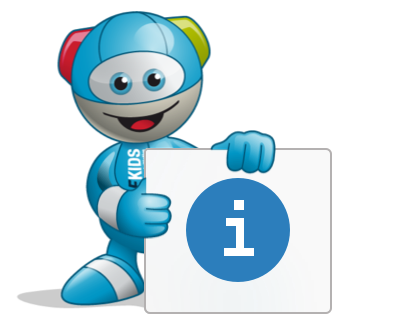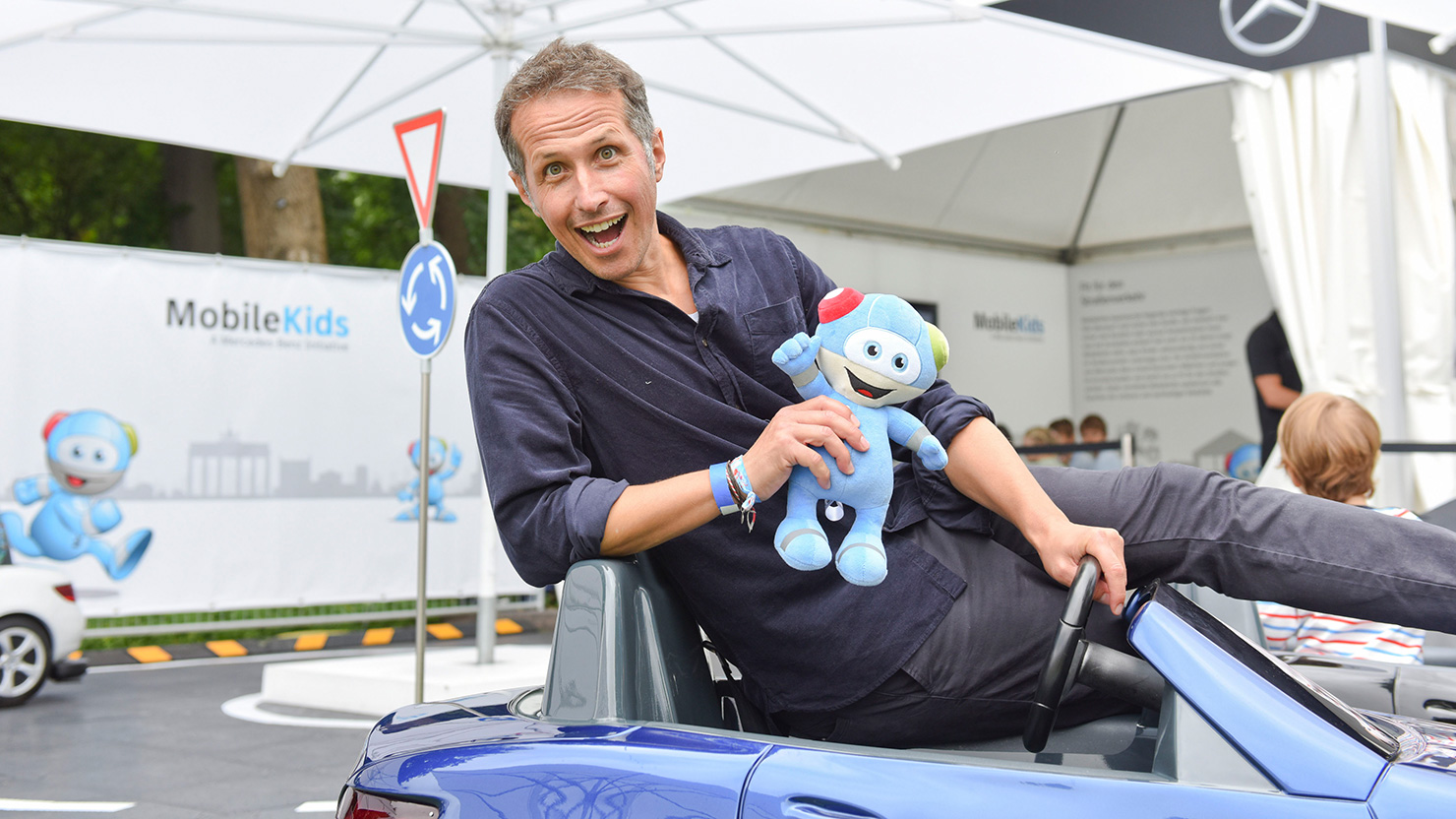Everyone knows Willi. This is also the case at the Federal President's Civic Festival in Berlin. The 49-year-old is a sought-after contact for young and old at the MobileKids children's traffic school on the Mercedes-Benz stand. In the interview, Willi Weitzel reflects on the right approach to learning content, future challenges in road traffic and the role of adults in road safety education, especially teachers and parents.
Mr Weitzel, who actually calls you Mr Weitzel?
This can happen, for example, when I go to the bank or the tax office calls. But otherwise there are relatively few people who don't call me Willi.
Is there a danger that you will only be perceived as the character Willi?
For me, Willi is not a character, but a facet of me in which I am always a bit braver, a bit bolder and a bit bolder. As Willi, I can take more liberties.
How much Willi is there in Willi Weitzel?
Every one of us takes on different roles. For example, when I am with my family, I am the family man. Then you are also in the role where you sometimes have to be strict with your own children. Children love to have boundaries set. Because they would like to go beyond these boundaries. But in general I love being Willi.
At 5, 7 and 14 years old, road safety education is still an issue for your children. How important is it to deal with this permanently?
This is extremely important. We must never tire of road safety education. Because there are always new children to whom we have to show the whole world of road traffic. It is important that the topic is always on the minds of us adults.
How crucial is it that the address also changes in the process?
Very important. We are talking a lot about public transport at the moment. Ten years ago, it didn't play such a big role. Suddenly, however, it is crucial that children behave properly on the bus or tram. If you look at the history of education, in the past people often said: Careful, you mustn't behave like that. Today one has a different approach. The children's driving licence of the MobileKids children's traffic school shows this impressively: here the children learn what goes through the minds of adults in the car by means of a change of perspective. In this way, they learn how important it is to behave correctly as pedestrians, because otherwise they may not be seen by motorists at all. Such measures on an equal footing are extremely important.
Who is more important in road safety education, teachers or parents?
In Africa, there is a saying that a whole village is responsible for raising a child. We all therefore have a responsibility. In the broadest sense, all adults are responsible for child protection. MobileKids is a great initiative. When it comes to educating children in road traffic, parents and teachers are equally responsible.
Do many parents approach the issue the wrong way by shifting the responsibility to the school?
Especially when it comes to traffic education, many parents need to take a good look at themselves. Because they can say to their children what they want, but when the father in the car regularly runs traffic lights that are already red, the children watch this very attentively from the back seat. And that is bad. Adults need to be a good role model. Words do not help if the crucial role model does not exemplify it.
You are an expert on how best to teach content to children. What is the best way to get children interested in road safety education?
Of course, a children's traffic school with electric cars like the one at MobileKids at the Federal President's Civic Festival in Berlin is the best way to inspire children and teach them something at the same time. I would certainly have loved these vehicles as a child. In addition, there is the theory part where the children receive important information. Both together make MobileKids and the children's traffic school a valuable initiative.
There are 180 "Willi wills wissen" episodes. But only a few have traffic education as a theme. Why is this?
That is correct. But there are many situations in the 180 episodes where I had to cross the road, for example. Then, of course, I pointed out to first look left, then right, left again and only then may you go. And there was an episode on the bicycle licence. I will not forget that. I passed the exam and even got a kiss from the teacher afterwards.
How much do you focus on the topic of traffic education in your current film series "Willi macht Schule"?
With these films for the classroom, which have been honored with multiple Comenius Awards for didactically distinguished educational media, we are targeting teachers. Traffic education is a big topic, especially the way to school. We have made megaherz Campus films especially for the first two years, but there is also appropriate content for the third and fourth years. The offers for older kids also include the bicycle driving licence.
When it comes to road safety education, hasn't everything been said and covered at some point?
No, we must not tire of tackling the issue again and again. Because the situations in road traffic are changing. Today, for example, children look at their mobile phones and run carelessly into the street. But I also think about the adults. They suddenly ride their electric scooters on the pavement and don't pay attention to children. Dear adults, it is your responsibility to look after the children.
Do adults also need to go to traffic school every now and then?
Absolutely. I don't think we can leave the children in charge and say, you have to make sure that you always cross the road safely. Adults are equally obliged to do so. You can't get your licence at 18 and still be driving around at 68 saying you know how to do it. Permanent learning is important for all areas of life, including road traffic.

Helmar Rudolph Willi Weitzel was born in Marburg in 1972. The father of three, who now lives on Lake Ammersee in Bavaria, became known as the presenter of the TV programme "Willi wills wissen". In 180 episodes broadcast from 2002 to 2010, he explained interesting factual topics to children. In the multi-award-winning TV series, he slipped into various professions, giving interesting insights and not shying away from sensitive topics. One episode that is still very popular today is: "What is death about?" Willi Weitzel calls himself a "reporter, presenter, world explorer, adventurer and producer".
He is also busy today. In addition to the educational film series "Willi macht Schule", he also makes motion pictures, gives lectures, is a book author and is involved in numerous institutions for children and environmental issues.









